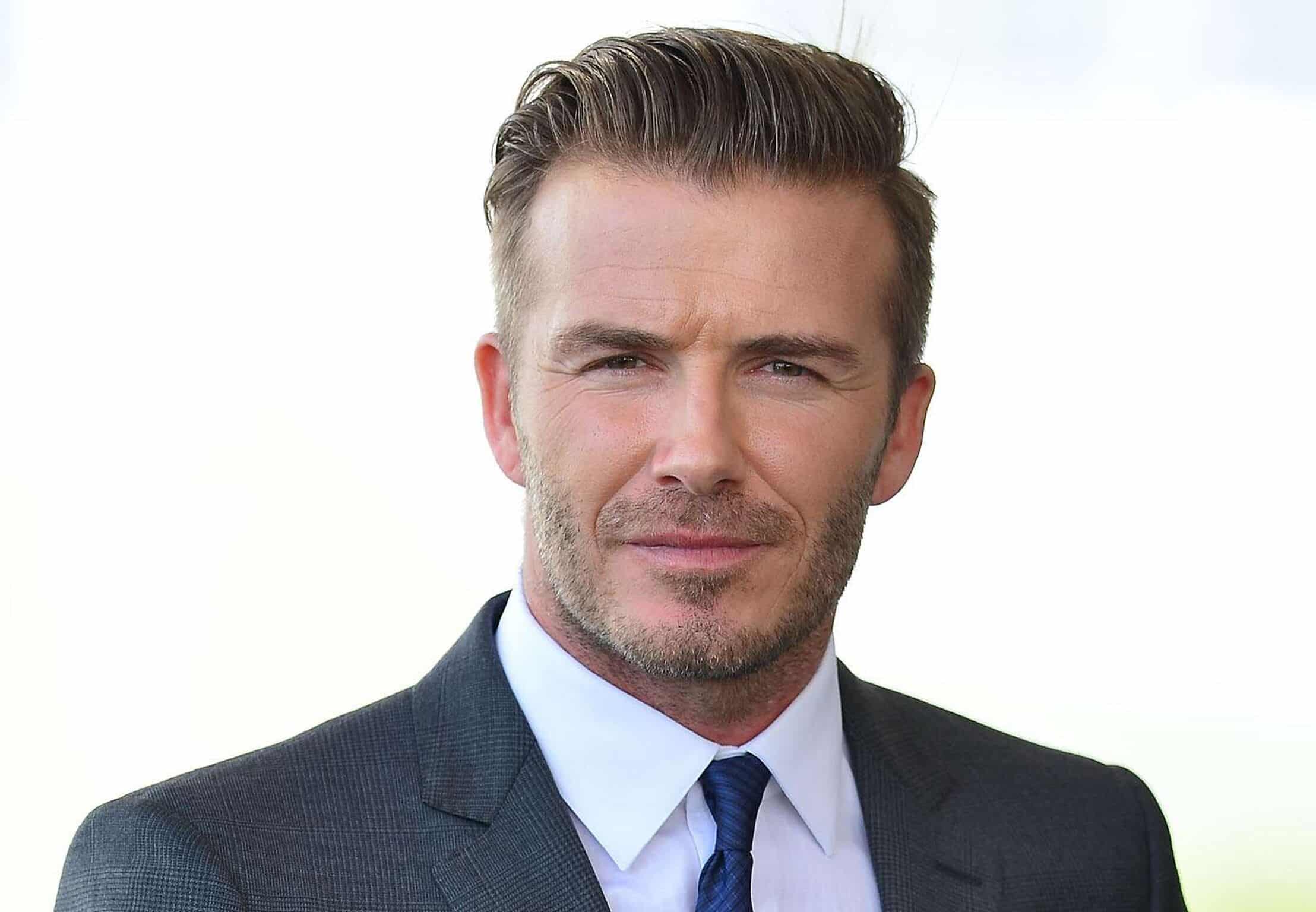Have you ever stopped to think about what makes someone truly captivating, someone who just seems to have that special something? Perhaps you have heard the term "beau" and wondered about its deeper meaning, or maybe the name "Beau Hayes" just sparks a bit of curiosity. This exploration is for anyone who appreciates the finer points of personal presence, historical word meanings, and the subtle ways language shapes our perceptions of others. We are going to look at how a name like Beau Hayes perfectly captures a long-standing idea of charm and appeal, drawing on rich historical roots.
The word "beau" carries quite a history, actually. My text tells us it comes from the French word for "beautiful" or "fine," tracing back to the Latin "bellus," which means "pretty." It is, in a way, related to words like "beauty" and "belle." This term, you see, has traditionally described a male lover or a sweetheart. It also refers to a man who gives a lot of thought to his clothes and how he looks. So, when we think of "beau," we are often picturing someone who is both romantically appealing and quite stylish.
Today, the idea of a "beau" still holds a certain appeal, though its direct use in everyday conversation might be a bit less common. However, the qualities it describes—a dashing young man, a thoughtful admirer, or someone with a keen sense of fashion—are still very much admired. This article will unpack the layers of what it means to be a "beau," tracing its journey through time and considering how a contemporary figure, someone like a "Beau Hayes," might embody these timeless characteristics in our modern world. We will, you know, explore why these qualities continue to matter.
Table of Contents
- Understanding the Term "Beau"
- The "Beau" Through Time
- The Modern "Beau Hayes"
- Why "Beau Hayes" Still Matters Today
- Frequently Asked Questions About the Term "Beau"
Understanding the Term "Beau"
The word "beau" has a rich past, actually. It is a term that has been around for a long time, evolving in its specific uses but always keeping a core sense of attractiveness and charm. It is, you know, a word that paints a picture of a certain kind of person.
Roots in Language and Love
As my text points out, the word "beau" comes from French, meaning "beautiful" or "fine." It has Latin roots, too, stemming from "bellus," which means "pretty." This etymology, in a way, immediately tells us something important about the word. It is, quite literally, tied to beauty and pleasantness. For centuries, people have used "beau" to talk about a romantic partner, specifically a male one. It is often a term for a sweetheart or a male lover. This shows its deep connection to personal relationships and feelings of affection. The word, you see, carries a gentle, almost poetic feeling when used in this way. It suggests a person who is cherished and admired.
The idea of a "beau" as a romantic interest is, in some respects, quite traditional. It evokes images of courtship and devoted attention. A woman might speak of "her beau" with a certain fondness, indicating a special connection. This use of the word highlights the personal, intimate side of its meaning. It is a term that speaks of affection and a kind of gentle adoration, rather. It is not just any male friend, but someone who holds a particular place in one's heart.
A Focus on Appearance and Style
Beyond its romantic side, "beau" also points to a man who cares a lot about his appearance. My text mentions this specifically, describing a "man who is greatly concerned with his clothes and appearance." This aspect of the word brings to mind someone who is well-dressed, perhaps even a bit flashy, in a good way. Think of a "dashing young man" or someone who is fashionable. This part of the definition suggests a person who takes pride in how they present themselves to the world. It is about more than just looking neat; it is about looking stylish and making an impression, you know.
Historically, this focus on appearance has been a significant part of what defined a "beau." These individuals were often trendsetters, influencing fashion and manners. They paid attention to details, from their hats to their shoes, and everything in between. This attention to personal style was, in a way, a form of self-expression. It was about showing a certain level of refinement and taste. So, a "beau" was not just handsome; he was also someone who understood and practiced the art of dressing well. This connection between the term and a refined sense of fashion is, you know, a pretty key part of its overall meaning.
The "Beau" Through Time
The concept of a "beau" has shifted a bit over the centuries, but its core elements of charm and style have, in some respects, remained. Looking back helps us understand its present-day meaning. It is, you know, a term that has adapted.
Historical Figures and Fashion
When we think of historical "beaus," certain figures come to mind, even if they were not explicitly called that in their time. The 18th and 19th centuries, for example, saw the rise of the "dandy." These were men who put a lot of effort into their clothing and appearance, often setting trends. Beau Brummell, a very famous figure from Regency England, is perhaps the most well-known example. He was not just about flashy clothes; he was about understated elegance, cleanliness, and perfectly tailored garments. His influence was, in a way, enormous, shaping men's fashion for generations. He showed that a "beau" could be someone who exemplified taste and restraint, not just extravagance. This era really cemented the idea of a "beau" as a fashion leader, you know.
These historical "beaus" were often admired for their wit, their manners, and their ability to navigate social circles with ease. Their fashion choices were a reflection of their personality and their place in society. They understood the power of presentation, and how it could open doors or convey status. So, the "beau" was not just a clotheshorse; he was a social figure, too. He was, in some respects, a master of self-presentation, using his appearance to communicate a certain message about himself. This historical context helps us see how deeply rooted the idea of a stylish gentleman is in the meaning of "beau."
Shifting Meanings in Society
Over time, the specific use of "beau" changed. In the early to mid-20th century, it was still fairly common to hear a young woman refer to her boyfriend as her "beau." This use emphasized the romantic, sweetheart aspect of the word. However, as language evolves, other terms like "boyfriend" or "partner" became more widely used. This shift reflects broader changes in society and how people talk about relationships. The term "beau," in a way, became a little more old-fashioned, carrying a nostalgic charm rather than being a common everyday word. It is, you know, a bit like a gentle echo from the past.
Despite this, the underlying qualities associated with a "beau" have never really gone away. The appreciation for a well-dressed man, someone with good manners, or a charming admirer remains. The word might not be on everyone's lips every day, but the qualities it represents are still valued. People still look for partners who are considerate, stylish, and engaging. So, while the word itself might seem a bit historical, the concept it embodies is, in some respects, quite timeless. It shows how certain human preferences and social graces tend to persist, even as the words we use to describe them change.
The Modern "Beau Hayes"
So, what does it mean to be a "beau" in today's world, or rather, what qualities would someone like a "Beau Hayes" embody? It is not about strict rules, but about a certain presence and approach to life. It is, you know, a contemporary take on a classic idea.
Qualities of a Contemporary Gentleman
A modern "Beau Hayes" would likely possess a blend of traditional charm and contemporary awareness. This person would, arguably, be considerate and respectful in their interactions, showing genuine interest in others. They would have a good sense of humor and be able to hold a pleasant conversation, making people feel at ease. This is about more than just politeness; it is about a true warmth and a desire to connect. Such a person would, in a way, embody kindness and integrity. They would be someone you could trust, and someone who treats everyone with dignity, regardless of their background. These are, you know, pretty important qualities.
Furthermore, a modern "beau" would likely be open-minded and adaptable. They would be aware of current events and social issues, showing a thoughtful perspective. This does not mean being overly serious, but rather being engaged with the world around them. They would also possess a certain level of self-awareness, understanding their own strengths and areas for growth. This combination of classic good manners and a forward-thinking outlook is, in some respects, what makes a contemporary gentleman truly stand out. It is, you know, a blend that is both appealing and substantial.
Personal Presentation and Impact
Just as historical beaus paid attention to their attire, a modern "Beau Hayes" would likely care about his personal presentation. This does not mean following every fleeting trend, but rather having a distinct personal style that reflects who they are. It could be a classic look, a more relaxed approach, or something quite unique. The key is that it is intentional and well-maintained. This attention to detail shows respect for oneself and for the people one interacts with. It is, in a way, about looking put-together and confident. A person who presents themselves well often gives off an air of capability and care, you know.
Beyond clothing, personal presentation also includes grooming and general tidiness. A modern "beau" would ensure they are well-groomed, reflecting a commitment to self-care. This might involve a neat haircut, a well-kept beard, or simply a fresh and clean appearance. The overall impact of this careful presentation is that it conveys a sense of professionalism and self-respect. It also helps to make a good first impression, which can be quite important in many aspects of life. So, it is not about vanity, but about projecting a polished and confident image, which is, you know, pretty much always a good thing.
Relationships and Admiration
In the context of relationships, a "Beau Hayes" would certainly embody the "sweetheart" aspect of the term. This person would be a supportive and loving partner, showing affection and commitment. They would be attentive to the needs and feelings of their significant other, making them feel valued and appreciated. This involves active listening, thoughtful gestures, and a genuine desire to make the relationship strong. They would, in a way, be a source of comfort and joy. This kind of partnership is built on mutual respect and shared experiences, you know.
Furthermore, a modern "beau" would inspire admiration not just in romantic partners, but also among friends and colleagues. Their integrity, kindness, and positive outlook would draw people to them. They would be someone others look up to, perhaps for their calm demeanor or their ability to handle challenges with grace. This kind of admiration is earned through consistent good character and genuine interactions. It is, you know, about being a person of substance, someone who contributes positively to the lives of those around them. This broad admiration is a natural outcome of embodying the qualities of a true "beau."
Why "Beau Hayes" Still Matters Today
The enduring appeal of the "beau" archetype, represented by a name like "Beau Hayes," tells us something important about human nature and what we value. These qualities are, in some respects, quite timeless. They matter more than ever, you know, in our complex world.
Influence on Culture and Connection
Even if the word "beau" is not used as often as it once was, the qualities it describes continue to influence our culture. We still admire people who are well-mannered, stylish, and genuinely kind. These traits contribute to smoother social interactions and stronger personal connections. A person who embodies the "beau" qualities helps to create a more pleasant and respectful environment, whether in a social setting or a professional one. Their presence can, in a way, uplift those around them. This positive influence helps to foster better relationships and a more considerate society. It is, you know, a pretty powerful effect.
In a world that sometimes feels very fast-paced and impersonal, the idea of a "beau" reminds us of the importance of human connection and thoughtful engagement. It encourages us to slow down, to pay attention to details, and to treat others with grace. This focus on personal conduct and genuine interaction helps to build trust and understanding between people. It is, in some respects, a reminder that how we present ourselves and how we treat others really does matter. This kind of influence is, you know, pretty much always a good thing for society as a whole.
Finding Your Own "Beau" Qualities
While "Beau Hayes" might represent an ideal, the qualities associated with a "beau" are not exclusive to a select few. Anyone can cultivate aspects of charm, style, and genuine kindness. It is about self-awareness and a willingness to improve. Thinking about what makes a "beau" appealing can inspire us to reflect on our own presentation, our manners, and how we interact with others. This personal reflection can, in a way, lead to positive changes. It is about becoming the best version of yourself, rather.
You can learn more about the history of language on our site, which provides background on how words like "beau" come to be. Also, you can find inspiration and practical ideas to refine your personal style and presence. These resources can help you explore how you might incorporate some of these enduring "beau" qualities into your own life. Perhaps you could, for example, pay a little more attention to your attire, or practice active listening in conversations. Small changes, you know, can often make a big difference in how you are perceived and how you connect with others. You can also link to this page and discover tips for personal style.
Frequently Asked Questions About the Term "Beau"
People often have questions about the word "beau" and its use. Here are some common inquiries.
What does "beau" mean in a relationship?
In a relationship, "beau" typically means a male lover or sweetheart. It is a somewhat old-fashioned term for a boyfriend or a male admirer. It suggests a romantic connection and a sense of affection. So, if someone refers to their "beau," they are talking about their romantic partner, you know.
What is the difference between "beau" and "boyfriend"?
While both "beau" and "boyfriend" refer to a male romantic partner, "boyfriend" is the more common and contemporary term. "Beau" carries a more traditional or even literary feel. "Boyfriend" is a direct and widely understood label, whereas "beau" often evokes a sense of charm, fashion, or a slightly formal courtship, you know, from a different era.
Is "beau" an old-fashioned word?
Yes, "beau" is generally considered an old-fashioned word in everyday conversation. While it is still understood, it is not used as frequently as terms like "boyfriend" or "partner." Its use often adds a touch of nostalgia or a specific historical flavor to a sentence. It is, in a way, a word that has a long and interesting past.



Detail Author:
- Name : Justine Hane PhD
- Username : samir.reichel
- Email : iliana58@sawayn.com
- Birthdate : 2005-10-20
- Address : 818 Kuphal Centers Pietroshire, FL 01204-3442
- Phone : +1 (949) 469-5102
- Company : Haley, Cummerata and Grimes
- Job : Forensic Investigator
- Bio : Earum non est vero explicabo. Ipsa ea numquam eos quia deserunt reprehenderit aut. Voluptatem consequuntur ratione iste qui et. Ratione incidunt qui labore quasi dolores.
Socials
twitter:
- url : https://twitter.com/akoss
- username : akoss
- bio : Eius cumque labore placeat eum aut. Beatae autem rerum qui tempora vitae ab consequatur. In voluptate reiciendis tempora dolorem.
- followers : 6591
- following : 2576
linkedin:
- url : https://linkedin.com/in/ally.koss
- username : ally.koss
- bio : Et sint sit aut fugiat magni labore voluptatum.
- followers : 5053
- following : 2583
facebook:
- url : https://facebook.com/akoss
- username : akoss
- bio : Quis saepe iste natus et omnis aut. Consequatur ut deserunt minima a.
- followers : 2633
- following : 2924
instagram:
- url : https://instagram.com/allykoss
- username : allykoss
- bio : Et quis dolores esse non. Laboriosam praesentium exercitationem iure placeat.
- followers : 2107
- following : 376